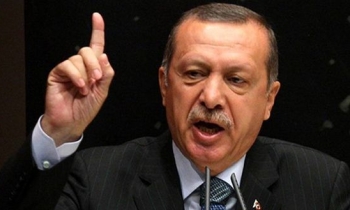A Beijing court on Friday morning unexpectedly dismissed a state secrets charge against a researcher for the New York Times but sentenced him to three years in prison on a lesser, unrelated charge of fraud, the newspaper has reported.
The verdict against researcher Zhao Yan, 44, spared him a prison sentence of 10 years or longer and also served as a blunt rebuke to the investigation by state security agents. Agents began detaining Zhao almost two years ago and accused him of leaking state secrets to the Times. He has consistently stated that he is innocent of both charges.

Zhao Yan had been accused of telling the US newspaper details of rivalry between Chinese President Hu Jintao and his predecessor, Jiang Zemin, over military appointments in 2004. The newspaper reported in September that year that Jiang was likely to retire as China's military chief, handing over his sole remaining post to Hu — a forecast that turned out to be true.
In an unexpected turn of events on Friday, however, the court said there was "insufficient evidence" for the state secrets charge. "We maintain that Zhao Yan is innocent but I was surprised. He seemed surprised as well," defence lawyer Guan Anping was quoted by Reuters.
The court did, however, find Zhao guilty of fraud, saying that in 2001 he took 20,000 yuan ($2,500) from a village official on the unfulfilled promise of helping him avoid "labour re-education" — a form of imprisonment. Had Zhao been convicted on the much graver secrets charge, he would have faced 10 years or more in a high-security jail.
"The case will stand as a rare example of a (Chinese) court being allowed or instructed to acquit on a charge of the utmost sensitivity," Jerome Cohen, a US expert on Chinese law who advised the New York Times on the case, told Reuters.

Zhao's lawyers said he now had 10 days to decide whether to appeal the sentence. Given the two years he has already spent in detention, the sentence would keep him in jail until September 2007. Guan said there appeared to be no procedure to allow authorities to revive the state secrets charge.
The New York Times has consistently denied that he leaked any state secrets to the newspaper. "If the verdict is what it appears to be, we consider it a vindication," said Bill Keller, executive editor of the Times. "We have always said that to the best of our knowledge the only thing that Zhao Yan committed is journalism."
Zhao was adamant he was innocent of fraud and would probably appeal, his sister, Zhao Kun, said. "He's been the most willing to speak up for ordinary people. How could he possibly take their money?" she said.
Zhao Yan, an ex-policeman with the gruff twang of a northeast China native, joined the Beijing bureau of the New York Times in 2004, after working as a investigative journalist for Chinese publications, mixing exposes of corruption and rural suffering with rights advocacy.
According to the New York Times, the more serious state secrets charge was outlined in the confidential state security investigation report. It accused him of leaking state secrets for a Times article about transition among the country's top leaders. The article, published 10 days before Zhao was detained, revealed that former President Jiang Zemin had unexpectedly offered to resign from his final leadership position, as military chief.

The investigation report did not accuse Zhao of being one of the anonymous sources cited for Jiang's resignation offer. Instead, security agents accused him of providing information about jockeying between Jiang and his successor, Hu Jintao, over positions in the military's high command. A reference to this jockeying was included as context at the end of the article, an NYT report said.
As evidence, the investigation report cited a photocopy of a note in which Zhao had scribbled down a few sentences of political gossip about the jockeying. The note was left in the Times office in Beijing. Zhao's lawyers maintained that such information should hardly constitute a state secret. Even so, questions remain about how security agents obtained a copy of the note. One possibility is that agents entered the newspaper's Beijing bureau without permission.
Zhao's trial was held in June. He was not allowed to call any defence witnesses and his family was forbidden from attending the proceedings.









